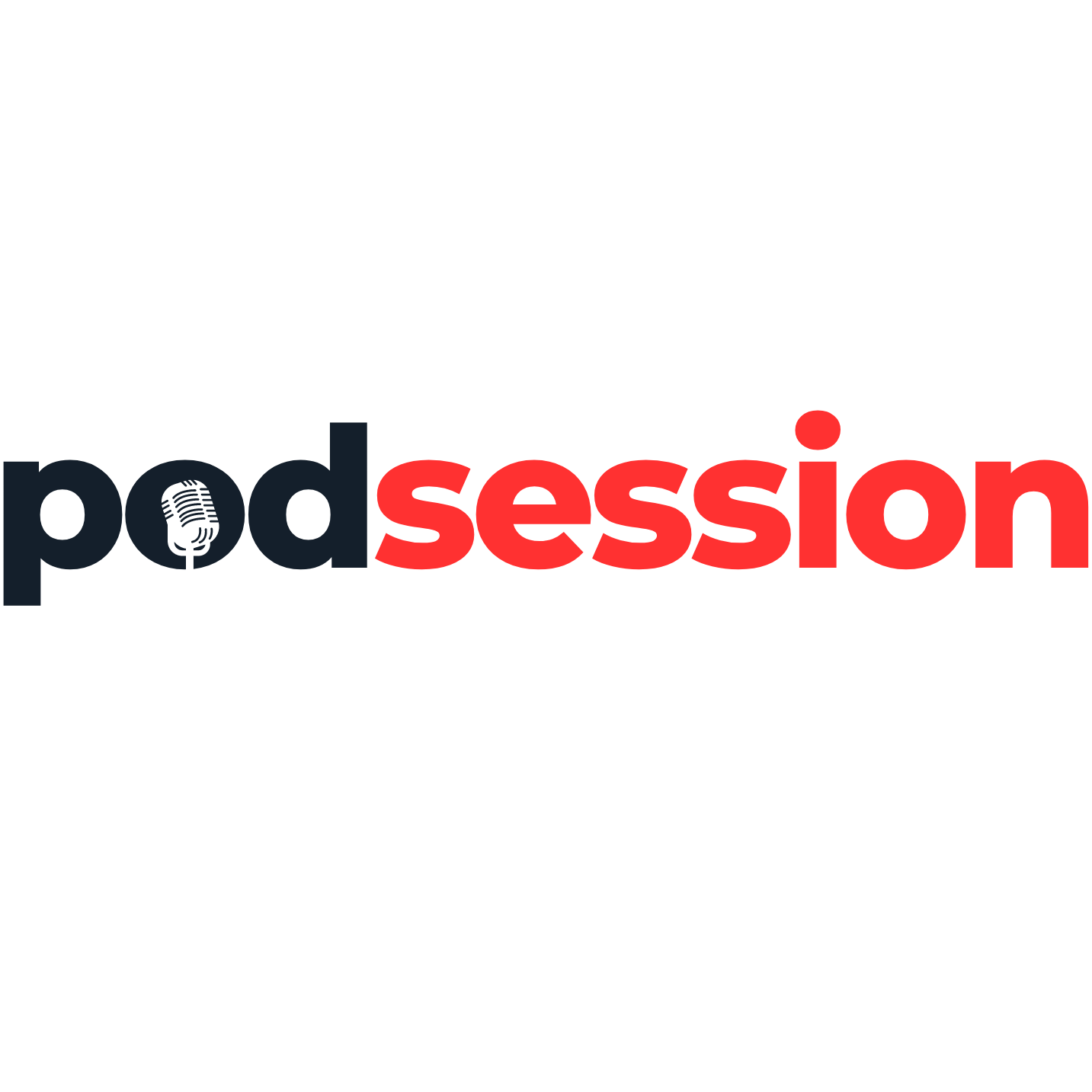
1.2K
Downloads
163
Episodes
🎙️ Welcome to Podsession, your daily dose of trending products, hot topics, and the latest news! Join us as we dive into what’s buzzing today—from the coolest gadgets and must-have products to the hottest conversations and breaking headlines. Stay updated and entertained with our expert takes and engaging discussions. Whether you’re a news junkie or just looking for what’s new, Podsession has something for everyone. Don’t miss out—hit that subscribe button and stay in the loop every day!
Episodes

Sunday Sep 22, 2024
Sunday Sep 22, 2024
Visit TopNaturalHealth.com for special promo code pricing on all of the products mentioned in today’s episode.
As men age, a natural decline in testosterone levels is inevitable. Testosterone, the hormone responsible for many physical and sexual functions, gradually reduces in men after the age of 30. By the time men reach their 50s, this decline becomes more noticeable, with some men experiencing symptoms such as reduced energy levels, decreased muscle mass, and lower libido.
This drop in testosterone can affect not just physical health but mental and emotional well-being too. To counteract these effects, many turn to testosterone boosters, natural supplements, or lifestyle changes to enhance their body's ability to produce more testosterone. While testosterone therapy is an option, it comes with potential risks. For men seeking a safer, more natural alternative, understanding the best testosterone boosters available can be a game-changer.
What is Testosterone, and Why Does It Matter?
Testosterone is the principal sex hormone in men, although it’s present in smaller amounts in women too. It plays a crucial role in regulating various bodily functions, including:
Sexual health: Maintaining libido and sperm production.
Physical strength: Promoting muscle strength and mass.
Bone density: Helping maintain strong bones and preventing osteoporosis.
Mood regulation: Stabilizing mood and helping prevent depression.
Testosterone’s influence also extends to the deepening of the voice during puberty, hair growth patterns, and the development of sexual organs like the penis and testes. For men, keeping testosterone at healthy levels is key to ensuring optimal performance in various aspects of life.
However, testosterone levels naturally decline with age, dropping by 1-2% per year after the age of 30. By the age of 50, many men experience noticeable symptoms of low testosterone, including fatigue, weight gain, and erectile dysfunction. But what causes testosterone to decline, and what can be done to counteract it?
Symptoms of Low Testosterone in Men Over 50
Before considering testosterone boosters, it’s important to recognize the symptoms associated with low testosterone levels. Understanding these symptoms can help men determine whether they need to consider natural remedies or consult a doctor.
Common Symptoms Include:
Loss of Muscle Mass: One of the earliest signs of low testosterone is the gradual loss of muscle strength and size. Men often find it harder to build and maintain muscle despite working out.
Increased Body Fat: Low testosterone levels can also cause weight gain, particularly around the abdomen, as testosterone helps regulate fat distribution.
Decreased Libido: Perhaps one of the most noticeable effects is a reduction in sexual desire and performance. Men may experience difficulty achieving or maintaining erections.
Mood Changes: Men with low testosterone may suffer from irritability, anxiety, and depression. Mental fog, trouble concentrating, and low motivation are also common.
Fatigue: Another significant symptom is a persistent feeling of tiredness, even after rest.
Loss of Body Hair: Testosterone plays a key role in hair growth, and a drop in levels can lead to thinning or loss of facial, pubic, and body hair.
Other Symptoms Include:
Hot flashes
Difficulty sleeping
Decreased bone density, leading to fractures
Natural Testosterone Boosters for Men Over 50
Testosterone replacement therapy (TRT) is one option for treating low testosterone levels. However, many men are wary of the potential risks associated with TRT, such as increased cardiovascular problems. For this reason, more natural methods of boosting testosterone, through lifestyle changes and supplements, are becoming increasingly popular.
1. D-Aspartic Acid
D-aspartic acid is a naturally occurring amino acid that plays a role in testosterone production. Some studies suggest that D-aspartic acid can help stimulate the release of hormones that promote testosterone production, such as luteinizing hormone and follicle-stimulating hormone. However, the effectiveness of D-aspartic acid is debated, as some studies have shown significant increases in testosterone, while others suggest minimal to no impact.
How it works: D-aspartic acid works by promoting the release of hormones that signal the testes to produce more testosterone.
Potential benefits: Some users report improved sexual performance and increased muscle mass.
2. Zinc
Zinc is an essential mineral that plays a key role in testosterone production. Zinc deficiency has been linked to lower testosterone levels, making supplementation important for men who are deficient. Studies have shown that supplementing with zinc can increase testosterone levels in both sedentary individuals and athletes.
How it works: Zinc promotes testosterone production in the testes and is also involved in immune system function.
Food sources: Oysters, beef, oats, nuts, seeds.
Caution: Excessive zinc intake can lead to anemia and immune system dysfunction.
3. Magnesium
Magnesium is another essential mineral that can have a positive impact on testosterone levels, particularly in men who are deficient. Studies show that magnesium can increase both free and total testosterone, particularly in those who exercise regularly.
How it works: Magnesium supports muscle function and is involved in the biochemical reactions that produce testosterone.
Food sources: Leafy greens, seeds, nuts, and whole grains.
4. Vitamin D
Vitamin D, often referred to as the "sunshine vitamin," is critical for testosterone production. Many men are deficient in vitamin D, particularly during the winter months when sunlight exposure is limited. Research has shown that supplementing with vitamin D can increase testosterone levels by up to 20% over the course of a year.
How it works: Vitamin D receptors are found on cells in the testes, suggesting that vitamin D is directly involved in testosterone production.
Food sources: Fatty fish, fortified milk, eggs.
5. DHEA (Dehydroepiandrosterone)
DHEA is a hormone produced by the adrenal glands and serves as a precursor to testosterone. As men age, their DHEA levels naturally decline, which can contribute to lower testosterone production. Supplementing with DHEA has been shown to increase testosterone levels, though the results are mixed.
How it works: DHEA is converted into testosterone in the body, making it a potential supplement for boosting testosterone levels.
Caution: DHEA supplementation may raise blood pressure and lower HDL (good cholesterol) levels.
6. Ashwagandha
Ashwagandha is a popular herb in Ayurvedic medicine, known for its adaptogenic properties, meaning it helps the body deal with stress. Stress can have a direct impact on testosterone levels, as increased cortisol (the stress hormone) can lower testosterone production. Ashwagandha has been shown to significantly increase testosterone levels in several studies.
How it works: Ashwagandha reduces cortisol levels, helping to support healthy testosterone production.
Potential benefits: Improved energy, fertility, and sexual health.
7. Fenugreek
Fenugreek is another herb used in traditional medicine that has gained popularity for its ability to boost testosterone levels. Fenugreek supplements are believed to enhance libido and improve overall sexual function in men.
How it works: Fenugreek contains compounds that may inhibit enzymes responsible for breaking down testosterone, thus increasing free testosterone levels.
Caution: Some users report gastrointestinal discomfort after taking fenugreek.
Lifestyle Changes to Boost Testosterone
Beyond supplements, several lifestyle changes can have a positive impact on testosterone levels. These include diet, exercise, sleep, and stress management. Incorporating these healthy habits can help maintain optimal testosterone levels naturally.
1. Exercise
Exercise, particularly weightlifting and high-intensity interval training (HIIT), is one of the most effective natural ways to increase testosterone. Building muscle mass through resistance training stimulates the body to produce more testosterone.
Best exercises for testosterone: Compound movements like squats, deadlifts, and bench presses.
Caution: While strength training boosts testosterone, endurance exercises like long-distance running can have the opposite effect and lower testosterone.
2. Maintain a Healthy Weight
Obesity is directly linked to low testosterone levels. Men with higher body fat percentages are more likely to suffer from low testosterone. Losing excess weight can lead to significant increases in testosterone.
Tip: Aim for a balanced diet rich in protein, healthy fats, and vegetables to promote fat loss and support testosterone production.
3. Sleep
Getting enough quality sleep is crucial for testosterone production. Testosterone levels naturally peak during sleep, especially after three hours of deep, uninterrupted rest. Men who don’t get enough sleep are likely to experience lower testosterone levels.
Tip: Aim for 7-8 hours of sleep per night to maximize testosterone production.
4. Manage Stress
Chronic stress leads to elevated cortisol levels, which negatively impact testosterone production. Finding ways to manage stress, such as through meditation, exercise, or hobbies, can help keep cortisol levels in check and support testosterone production.
Tip: Incorporate stress-reducing activities like yoga or mindfulness meditation into your daily routine.
Risks of Testosterone Therapy
While testosterone therapy is an option for men with significantly low testosterone levels, it comes with risks. Testosterone therapy can increase the likelihood of certain health issues, including:
High blood pressure
Increased risk of blood clots
Enlarged prostate or the growth of pre-existing prostate cancer
Liver damage
Sleep apnea
Before considering testosterone therapy, it’s essential to weigh these risks with your doctor and explore natural alternatives.
Potential Side Effects of Testosterone-Boosting Supplements
Though natural testosterone boosters are generally considered safe, they can still have side effects, especially if not taken as directed or when combined with other medications.
Common Side Effects Include:
Excess Zinc: Too much zinc can cause digestive issues, anemia, and problems with the immune system.
Vitamin D Toxicity: High levels of vitamin D can cause kidney damage, heart rhythm problems, and confusion.
DHEA Side Effects: DHEA may raise blood pressure and lower HDL levels, potentially increasing the risk of cardiovascular problems.
Conclusion: Finding the Right Testosterone Booster
For men over 50, maintaining healthy testosterone levels is crucial for physical, emotional, and sexual health. While testosterone naturally declines with age, there are plenty of ways to boost your levels through natural supplements and lifestyle changes. Before starting any supplement regimen, it’s essential to consult with a healthcare provider to ensure the safety and appropriateness of the chosen method.
Version: 20241125

Comments (0)
To leave or reply to comments, please download free Podbean or
No Comments
To leave or reply to comments,
please download free Podbean App.